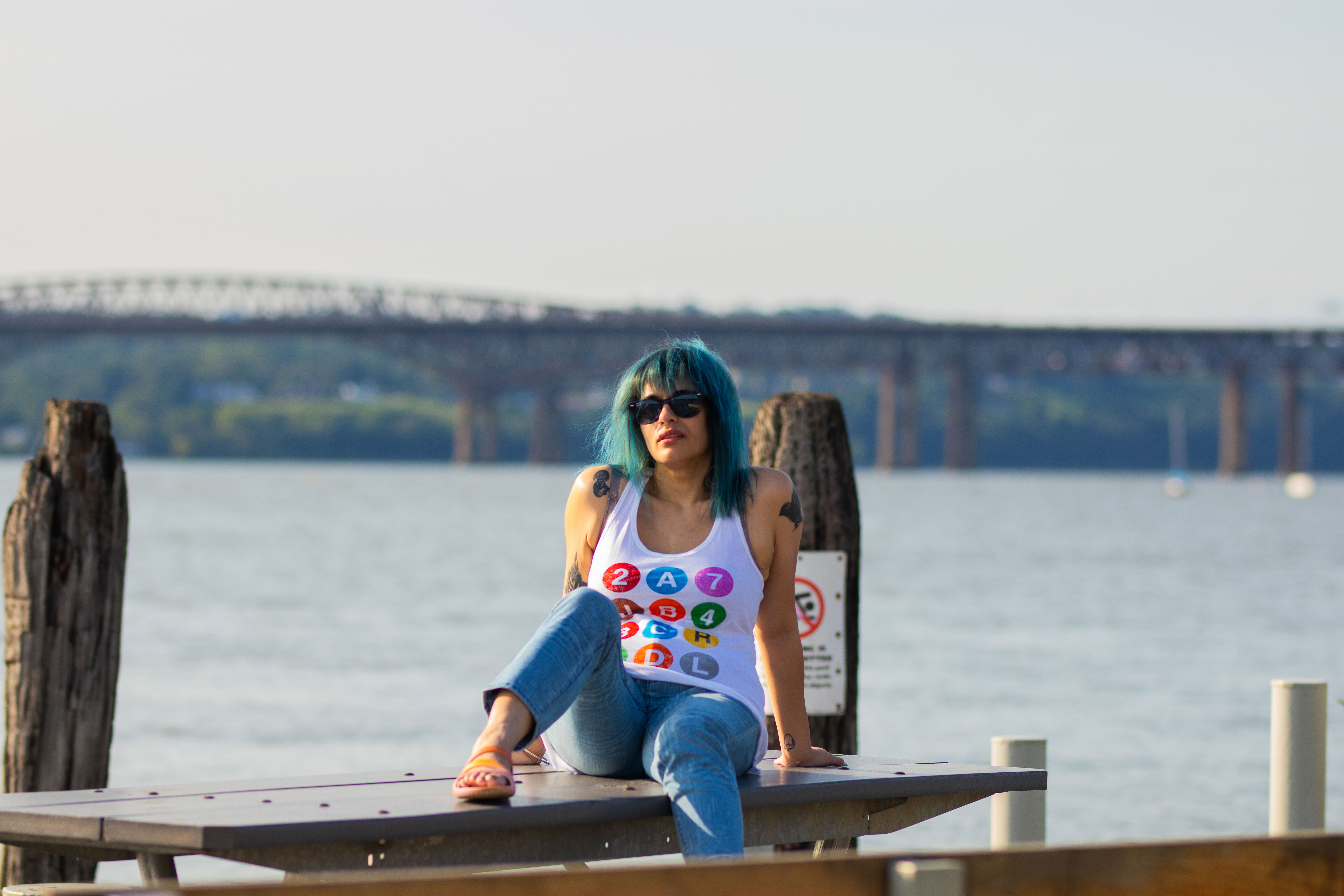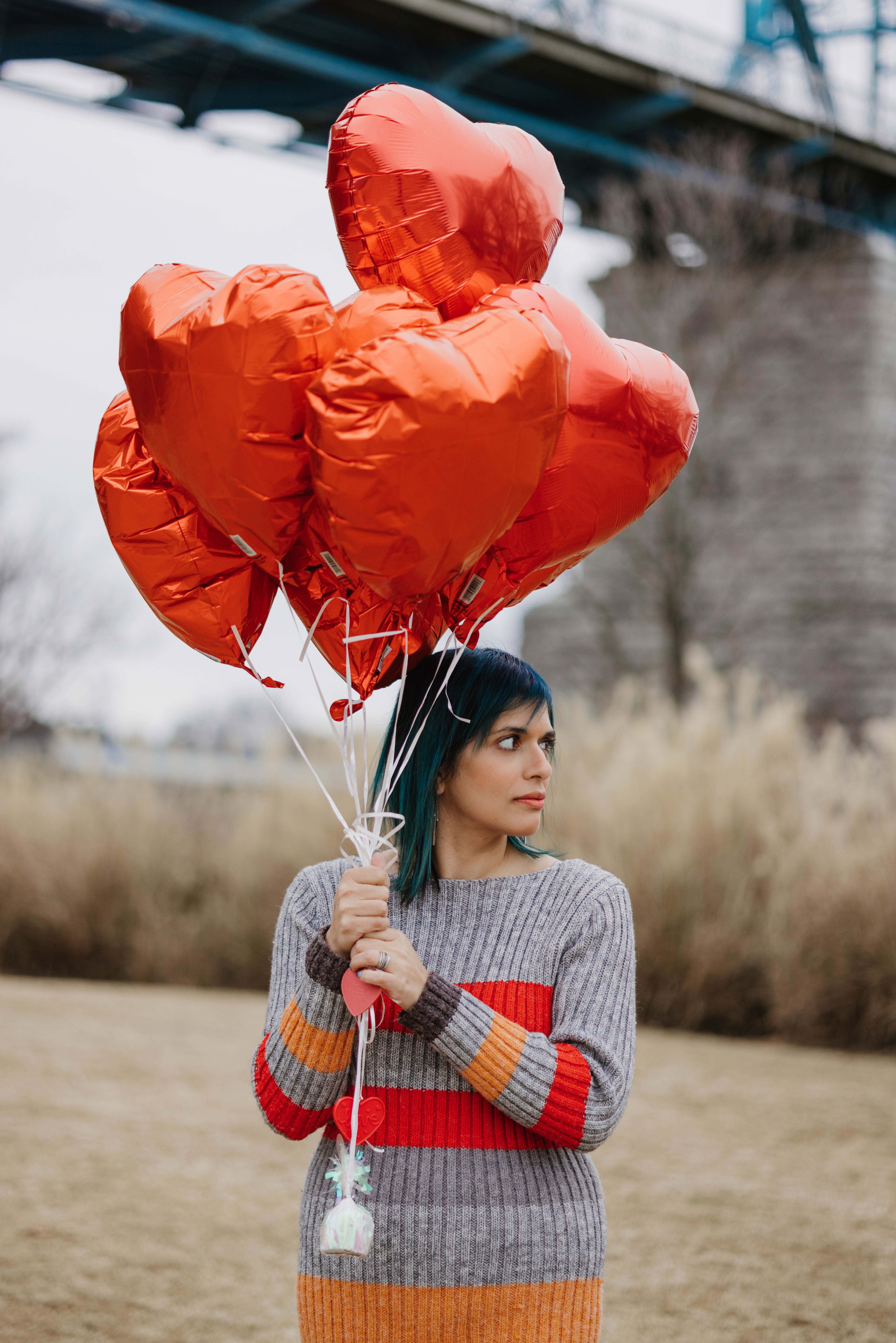Interview with Reeya Banerjee about her album "This Place"
Reeya Banerjee presenta "This Place", un álbum que ella misma describe como el trabajo más personal y completo de su carrera, casi un libro de memorias en forma de canciones. Cada tema está ligado a un lugar y a una etapa de su vida, desde su paso por Nueva York hasta momentos de pérdida, crecimiento y comunidad.
Grabado en un entorno más cercano y colaborativo que su debut, el disco combina narrativa y música con una intención de llevar estas historias al escenario y compartirlas en vivo.
1- What does "This Place" mean to you?
This Place is the best work I’ve ever made. It’s deeply personal — more like a memoir in album form than just a collection of songs. All of my music is rooted in real experiences, but this one is different. It feels massive, emotionally. It traces my growth, grief, healing, and self-discovery over the course of my life. I almost don’t have the words for what it means to me — but I know I’m immensely proud of it.
2- Each song is linked to a place. Is there one that marked you more than the rest?
The back half of the record — from “For the First Time” through the final track — is all rooted in my time living in New York State. Whether it's the Hudson Valley, New York City, or further upstate, those places shaped me profoundly. I’ve lived in New York longer than anywhere else, and I consider myself a New Yorker, even though I now live in New Jersey.
If I had to choose just one song that holds the deepest personal weight, it’s “Good Company.” That song is about a now-closed bar called Dogwood in Beacon, New York — a haven for local musicians and the place where I really found my footing in a creative community. It was more than a bar; it was a family. Its closing still hurts. The memories I made there — and the version of myself I became there — are at the heart of who I am as a musician.
3- What did you discover about yourself after finishing the album?
That I accidentally wrote my version of Springsteen on Broadway. I didn’t realize it until I sat down to write the liner notes and spotted my signed copy of Bruce’s memoir on the bookshelf. I was like, “Wait a minute… this is my Banerjee on Broadway!” The structure, the storytelling — it just clicked. It was unintentional, but also inevitable.
4- What was most different about recording this album compared to "The Way Up"?
The Way Up was made during lockdown — completely remote. My producer and co-writer Luke Folger and I did everything over email, Zoom, and phone. We didn’t even meet in person until we tracked vocals in early 2021! That album was written without knowing if venues would ever open again — we wrote it not intending for it to be performed live. When venues slowly started to open up again right as The Way Up was being released, I kind of hastily put a band together comprised of my musician friends and we learned the material from scratch all together. It was hard. There are some very funky experimental soundscapes on The Way Up that are challenging to execute live.
With This Place, the process was much more communal and grounded. We recorded everything at Lorien Sound, a studio owned by my friend James Rubino, who’s also the lead guitarist in my band. The production quality leveled up in every way. We had real drums, a proper engineer, and time to get everything right. And we wrote it knowing that we would be taking it on the road! That’s why we took nearly three years between albums — because this one deserved it.

5- You’re a writer as well as a musician. How much does that influence your lyrics?
I’m a primarily a lyricist at heart. This album came together from the top down — I knew what each song was going to be about before I ever wrote a line. I started with the story I wanted to tell, the core memory or emotional truth, and then I wrote free verse from there, and then started to turn them into lyrics.
Working with Luke was essential. He’s a composer by training, so he brings structure and musical architecture to my emotional raw material. I tell him what I want a song to feel like — sonically, emotionally — and he builds that world. Then I take the lyrics that I am working on and we work together to shape them to live inside that landscape. It’s a true music-and-lyrics partnership.
6- If each song is a map, what place represents your present today?
I’m back in the New York tri-state area after a brief detour to Chattanooga, Tennessee. My partner and I moved there for his job, and while there was a lot of natural beauty and I became a damn good distance runner, we missed home. We’re New Yorkers, through and through. The culture shock was very hard on both of us, and I didn’t have a music community again. It was a lonely year.
Now we have landed in New Jersey — which is funny, because as a New Yorker I used to joke about New Jersey all the time. But I love Bruce Springsteen, and so much of his mythos is being a product of New Jersey. So nowI live in the land of Springsteen! It feels fitting. I’m close to Brooklyn, close to the Hudson Valley, and creatively grounded again. So if you’re asking what place represents my present? It’s still New York… just with a little Jersey seasoning.
7- What did you feel the first time you listened to the finished album?
Overwhelmed — in the best way. This Place is essentially a concept album that traces a life’s journey, from childhood through adulthood, across geography and identity. And when I heard the final master, I thought: Yes. That’s exactly what I wanted it to be.
Now that it’s out in the world, and people are responding with warmth and understanding, that just amplifies the pride I feel. It’s validating to know the story landed.

8- Do you imagine this album as a kind of film of your life?
Absolutely. I went to film school — that’s how I originally trained as a storyteller. I still think in storyboard.
Each of these nine songs is a scene. Together, they make a film. Or maybe a nine-part miniseries. The structure is intentional — like nine vignettes, each grounded in place and time.
We’ve already made four music videos, and I can easily imagine what the other five would look like. Honestly, if someone handed me a boatload of money tomorrow, I’d love to make This Place: The Film. It’s already half-shot in my brain.
9- If you could talk to the Reeya who was just starting out, what advice would you give her?Don’t wait.
I came to songwriting later in life — I didn’t start writing originals until my mid-thirties. As a kid, I took piano lessons. I wanted to play bass, but that dream got shelved. I spent my twenties climbing the corporate ladder in Manhattan and burning out. Music lived in the background — something I wanted to do but didn’t know how.
Eventually, I bought a bass and started taking lessons at Beacon Music Factory, a local community music school where I lived (I eventually went on to work at the school for a couple of years!). I played in cover bands. I wanted to write, but I kept telling myself I didn’t know how.
One night at Dogwood (again — Dogwood!), my friend Jonathan Frith, who is a singer-songwriter in the folk tradition and writes achingly beautiful songs, said to me, “You just have to do it. No one’s going to give you permission.” And he was right. I was waiting for some sign that I was “ready.” But you become ready by doing the thing.
So that’s what I’d tell younger me — and maybe anyone reading this: Don’t wait. Don’t wait for permission. Don’t wait to be perfect. Just start.
But I’ll add this: I’m glad I didn’t start writing songs at 20. I wouldn’t have had anything to say. The music I write now is shaped by experience, by heartbreak, by joy, by surviving the long middle. That’s the voice I trust now — and it was worth waiting for.